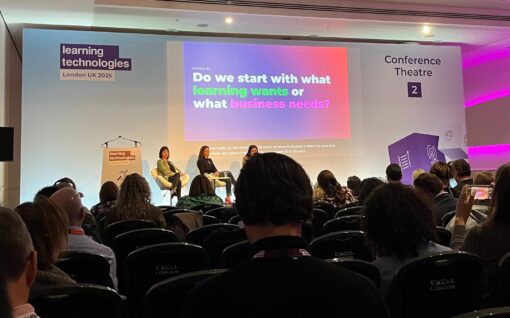What’s current research saying about education and skills?
What is the purpose of education today? Is it to develop people into well-rounded human beings or into efficient workers? Most (68%) of the 551 SME senior decision makers polled in a recent survey said the former – that the purpose of education is to develop people into well-rounded human beings.
Although that’s a sizeable majority, it does leave quite a big number (32%) who think the purpose of education is actually to develop people into workers. Interestingly, it’s SME decision makers in the transportation and distribution, education and retail sectors that most commonly went for the latter (50%, 40% and 40% respectively). A further 16% of respondents said neither (being developed into decent human beings or workers) and 2% said they didn’t know.
The research in question, The Future Skills Report: Education for a world of opportunity, was conducted by YouGov on behalf of ACS International Schools and IBSCA (IB Schools & Colleges Association).
The report looks at the role of education in relation to future skills and how business leaders think the education system should prepare children for the world of work. Or indeed, if educators should focus on workplace readiness and skills at all.
Skills – acquiring them, applying them, updating them, updating them some more…This is a big issue for employers (and employees) because of the pace of change. The World Economic Forum (WEF) has just released its latest Future of Jobs report and it tells a very similar story to previous reports – skills are changing all the time, making it almost impossible for organisations and individuals to keep up. Between now and 2027, the WEF says 44% of workers’ core skills will be disrupted because tech is moving faster than organisations can design and scale up training programmes.
That’s why there is now so much focus on people’s ability and willingness to learn and keep learning and to think for themselves. According to the WEF, the top 10 skills of 2023 are: analytical thinking, creative thinking, resilience, flexibility and agility, motivation and self awareness, curiosity and lifelong learning, technological literacy, dependability and attention to detail, empathy and active listening, leadership and social influence and quality control.
Back to the ACS International Schools/IBSCA report, which also looked at the most sought after skills. Subject knowledge was high up the list at 69% but four skills ranked higher – communication (88%), having an inquiring mind (78%), critical thinking (76%) and open-mindedness (72%).
There were some other interesting findings in the report around perspectives on charity work and whether it should be on the curriculum (36% of respondents said charity work, including fundraising activities, should be part of the school curriculum, while 17% said schools should not be expected to dedicate valuable teaching and learning time to charitable or community activities) but these findings became a bit lost in marketing-type content. The report was peppered throughout with comments about the value of IB (international baccalaureate) programmes and how ACS International Schools are developing the next generation of global thinkers with inquiring minds, communication and critical thinking skills and open-mindedness….That spoilt the report for me – it would have been much better to have just reported the findings and provided some expert comment. Instead, it felt like a marketing ploy that had skewed questions (not answers) to fit with the ethos of an IB education.
What about other research into the issue of young people and their workplace skills? A couple of years ago, PwC published some research into young people and workplace skills, showing that opinions were divided on whether the UK education system gives people the skills needed in the workplace. Half said the secondary system does, with 31% saying it doesn’t and 19% being undecided. Many (60%) of the 151 UK employers polled said a big challenge they face with people joining their organisation straight out of education (school, college or university) is that they are not work-ready. They lack time management skills (cited as a challenge by 51% of employers) and communication skills (45%).
Almost two thirds of employers (70%) think there is too much focus on grades in secondary education, although 86% of UK employers also rate A-levels as important in their recruitment process, so a somewhat mixed message there.
The last stat I would like to pull out from this PwC research is this one: 78% of respondents agree that the onus should partly be on employers to help shape curriculums.
What about young people? What do they think about their work-readiness. According to another piece of research by the WEF, conducted in 2021, 63% of its survey participants (almost 11,000 young people from 136 countries) think they will have the career they want. When asked what would most help them achieve their goals, 32% said job-ready skills programmes in schools, 28% said access to on-the-job training, 20% said access to relevant online resources and 19% said a good mentor. And they know that while core knowledge is important, it’s those softer skills such as creativity and communication that are really important.

